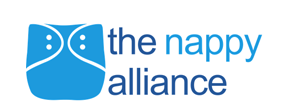
Banning plastic in wet wipes is a great start, but reusable wipes are the way to go
Labour MP Fleur Anderson has this week introduced a backbench Bill to ban the use of plastic in single-use wet wipes. In a rousing speech under the “Ten Minute Rule” in Parliament (where backbench MPs can introduce legislation on any topic with a limited amount of time for debate) the Putney MP set out some of the key arguments for plastic in wet wipes to be banned, including the fact that they break down into microplastics that harm wildlife and even end up being ingested by humans. Gasps of horror could be heard from the green benches as MPs discovered that humans consume around a credit card’s worth of microplastics every year!
Other shocking facts include:
- 90% of wet wipes contain plastic
- The UK gets through 11 billion wet wipes per year
- 93% of sewer blockages are caused by wet wipes, costing water authorities £100 million a year to clean up
The Nappy Alliance are wholeheartedly in support of this Bill. Although nowadays wet wipes are available for uses like household cleaning and facial cleansing, a large proportion of single-use wet wipes are marketed for use with babies. As producers and sellers of reusable baby products, we know that there is a difficult tightrope to walk when it comes to making products that have less of an environmental impact, and many of the same concerns exist for baby wipes as exist for nappies.
In her speech, Fleur Anderson noted that banning wipes entirely, or taxing their use would just hit already struggling parents hard – either by taking away a timesaving convenience or by stretching their budgets to the limit. Banning plastic in single-use wipes will put the onus back on to the producers to innovate and create a wipe that does not contain any plastic – or better yet, move to reusable versions.
The reusable nappy industry has been aware of this issue for some time, and is ahead of the curve when it comes to innovation, with reusable wipes becoming a rapidly growing option to use alongside both reusable and single-use nappies. Parents are discovering that reusable alternatives to wipes are cheaper than single-use and can fit in easily to their routines whether or not they use reusable nappies. For some parents, this is the first step on the road to more sustainable parenting.
The choice of reusable wipes is incredibly broad, with fabrics available like bamboo, microfibre and organic cotton. They can be used with plain water, which means that they additionally avoid the antimicrobial chemicals that are added to wet wipes to prevent them going mouldy. When a child is potty trained, the wipes can be repurposed for use around the home. For more information, see this handy guide, from our member the Nappy Gurus to getting started with reusable wipes.
We recognise many of the issues that Fleur Anderson rightly raised – that in some situations single use wipes are an appropriate choice – but we also know that creating plastic-free versions of single-use products don’t entirely solve ecological issues, as resource consumption is responsible for 50% of carbon emissions & 90% of the earth’s biodiversity loss. Reusable products must be part of the solution, otherwise the problem is merely moved somewhere else.
This issue has received widespread support from all sides of politics, the water industry, environmental NGOs and individuals. We are proud to be part of the solution to protect our environment from single-use plastics, and we wish Fleur Anderson the very best of luck for the progression of the Bill.
If you want to explore the many kinds of reusable wipes that are available, you can find a great selection from Nappy Alliance members by clicking the logos below:





